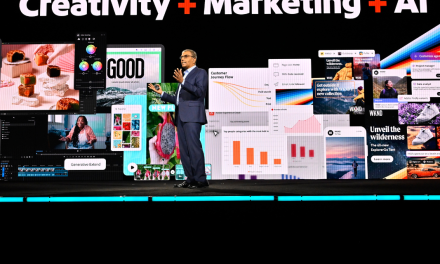Global survey among marketers finds that brands’ top priorities for 2022 are increasing brand awareness, un-siloing measurement, developing personalized strategies, and becoming more purpose-driven.
With continued digital fragmentation, marketers report data accuracy, measurement, and ROI are paramount. While 69% of marketers believe first-party data is essential for their strategies and campaigns, and 72% of marketers believe they have access to quality data, only 26% of global marketers are fully confident in their audience data.
These findings are from Nielsen’s 2022 Annual Marketing Report. The report, which surveyed nearly 2,000 global marketers between December 2021 and January 2022, both revealed a digital dominance in how dollars are being spent and exposed marketers’ lack of confidence in the data behind those decisions.
Titled “The Era of Alignment”, the report found marketers around the world are experiencing similar areas of success and challenges, as shown by:
- Brand awareness is marketers’ top objective. To reach this goal, brands need to leverage an array of channels to reach the widest audience. Nearly two-thirds (64%) of respondents stated that social media is the most effective paid channel with TikTok and Instagram dominating spend. Comparatively, TV and radio spend is significantly less with an aggregate increase of 53% across global marketers. Customer acquisition is their second objective, showing that marketers must focus efforts on the entire customer journey.
- Increased media fragmentation amplifies the need for holistic measurement. Marketers’ confidence in measuring ROI of the full-funnel is only 54%. Remove online and mobile video and confidence in measuring ROI across all other channels is under 50% globally, and while nearly half of marketers plan to increase their spending on podcasts, their confidence in measuring the ROI of that investment is 44%.
- It’s vital for marketers to use data to champion personalized marketing strategies. The increasing proliferation of channels produces an abundance of unique data sets. However, 36% of marketers still claim that data access, identity resolution, and deriving actionable insights from data is either extremely or very difficult. With the rise of connected TV (CTV) this presents new challenges to traditional targeting solutions. CTV is a growing focus for global marketers, with 51% planning to increase their over-the-top/CTV spending in the coming year. To wit, Americans streamed almost 15 million years’ worth of content across subscription- and ad-supported platforms.
- By placing a greater emphasis on purpose-driven initiatives, marketers can better connect with consumers. Nielsen Research shows over half of U.S. consumers (52%) purchase from brands that support causes they care about; similarly, more than 36% expect the brands they buy to support social causes. While global marketers say their brands are emphasizing purpose, Nielsen data shows that 55% of consumers aren’t convinced that brands are fostering true progress.
“This research showcased that marketers want to put money into channels to deliver immediate ROI, however we also see that they must be agile in the year ahead and work across the entire marketing funnel to reinforce brand awareness and acquire more customers,” said Jamie Moldafsky, Chief Marketing and Communications Officer, Nielsen. “With the upcoming elimination of third-party cookies, it’s understandable to see marketers prioritizing personalization and aligning their brand with causes their customers care about. Through our solutions – and this report – we’re continuing to help brands and marketers get actionable insights to make more informed, and quicker decisions.”
This is the fifth Annual Marketing Report produced by Nielsen.



















